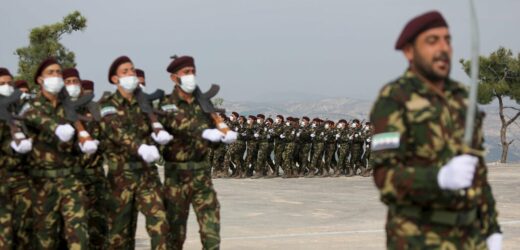When the leader of the United Nations more than a year ago implored armed combatants to pause their fighting so the world could focus on battling the coronavirus, he warned that “the worst has yet to come” in the disease’s rampage, especially through conflict zones.
That forecast in April of 2020 by Secretary General António Guterres proved not only correct — it may also have been an understatement.
“In many countries, conflict has made it more difficult to control the spread of the virus and care for infected people,” Mark Lowcock, the top U.N. relief official, told the Security Council on Tuesday as it met to discuss the protection of civilians in armed conflicts.
Not only did the antagonists in the chronic conflicts of Syria, Yemen, South Sudan, Afghanistan and eastern Ukraine ignore the plea to put down their weapons, but new or renewed fights erupted — between Azerbaijan and Armenia last September, within Ethiopia in November, within Myanmar in February, and most recently between the Israeli military and Hamas in Gaza.
Many of these conflicts were a major contributor to the surge last year in the number of forcibly displaced people, which reached a total of at least 80 million, Mr. Lowcock said, while “insecurity, sanctions, counterterrorism measures and administrative hurdles hindered humanitarian operations.”
The 11-day war that was halted last week between the Israeli military and Hamas, the militant group that controls Gaza, provided a textbook example of how the coronavirus could prosper in a conflict zone.
Gaza, a densely crowded coastal strip that is home to two million people, had already been suffering a severe outbreak of Covid-19 infections before the conflict erupted.
Then Israeli bombings destroyed Gaza’s only coronavirus testing facility and forced thousands of unvaccinated Gazans into U.N. schools that became bomb shelters, with no social distancing.
Matthias Schmale, the top U.N. Palestinian relief official in Gaza, said he feared those schools had become “mass spreaders,” which could deepen the disease’s grip on Gaza — weeks after the hostilities ceased.
Source: Read Full Article


